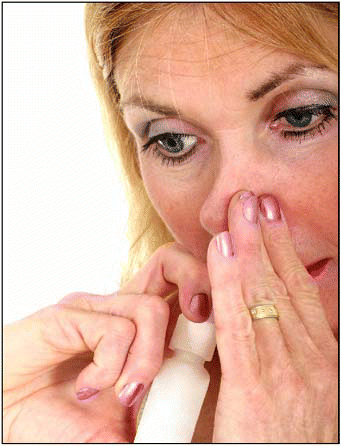Resistance and increasingly virulent bacteria are a public health concern related to overuse or inappropriate use of antibiotics. Dr. Leopold explained that antibiotics are not risk-free. Some patients can develop intrinsic resistance to an antibiotic, allergic reaction can occur, and, in rare instances, antibiotics can cause a life-threatening systemic reaction.
Explore This Issue
July 2007
Overuse and inappropriate prescribing of antibiotics are especially disturbing to Dr. Leopold because there are better alternatives. His preference is saline irrigation, which is simple to use and inexpensive. Saline irrigation provides relief of symptoms, reduces inflammation, rids nasal passages of stagnant mucus, and irrigates the nasal passages, reducing the likelihood of the development of opportunistic infections. Saline lavage comes with a squeeze bottle and can be purchased over the counter. Typically a patient will use it once or twice a day, squeezing the contents of the bottle gently up the nostril.
“Saline lavage is my treatment of choice, and I would suggest it for acute symptoms, bacterial or viral,” he commented.
Several new drugs under development to treat chronic rhinosinusitis are targeted to the inflammatory component, and some of these hold promise, Dr. Leopold said. “These new drugs are a bright hope for the many patients who suffer from this condition,” he said.
Educate Physicians
Dr. Leopold feels hopeful that the message from his study and other studies will reach primary care physicians, and that they will become aware that saline irrigation is an effective option for rhinosinusitus symptoms. But saline irrigation is not a “sexy” product that is being promoted by a large pharmaceutical company, so it will take time for the message to filter down into the community.
“There will be no large studies and no commercial promotion of that product,” Dr. Leopold said.
Educating patients is even harder, because the US health care system leaves little time for physicians to spend with patients. Discussing the benefits of saline irrigation takes more time than prescribing antibiotics, Dr. Leopold noted. “If you discuss saline irrigation with patients, it may keep them from consulting a doctor next time they have symptoms. They will be able to treat them themselves using this simple inexpensive treatment,” he said.
Global Problem
Misuse of antibiotics is a global problem, stated Michael Benninger, MD, Chairman of the Department of Otolaryngology/Head and Neck Surgery at Henry Ford Hospital in Detroit. Overuse of antibiotics is the major cause of resistance in the United States, as well as in other countries such as Japan, and Korea. However, in Scandinavia, where antibiotics are used more sparingly, resistance is a much less major problem, he explained.
Leave a Reply